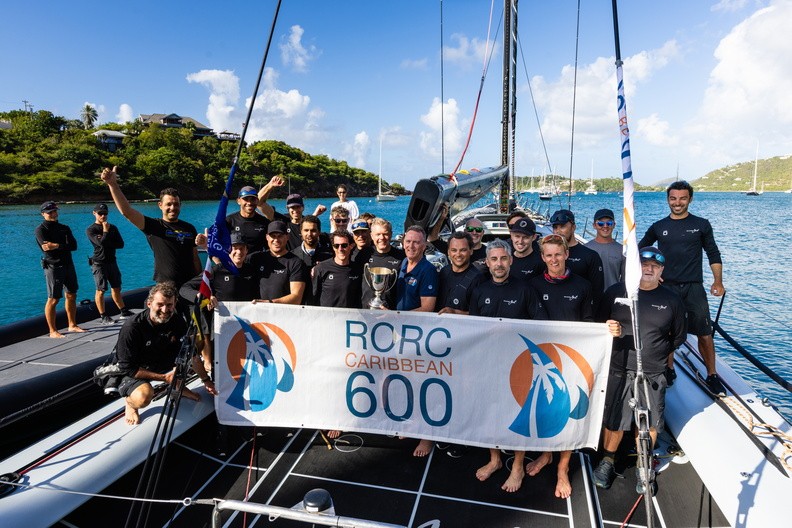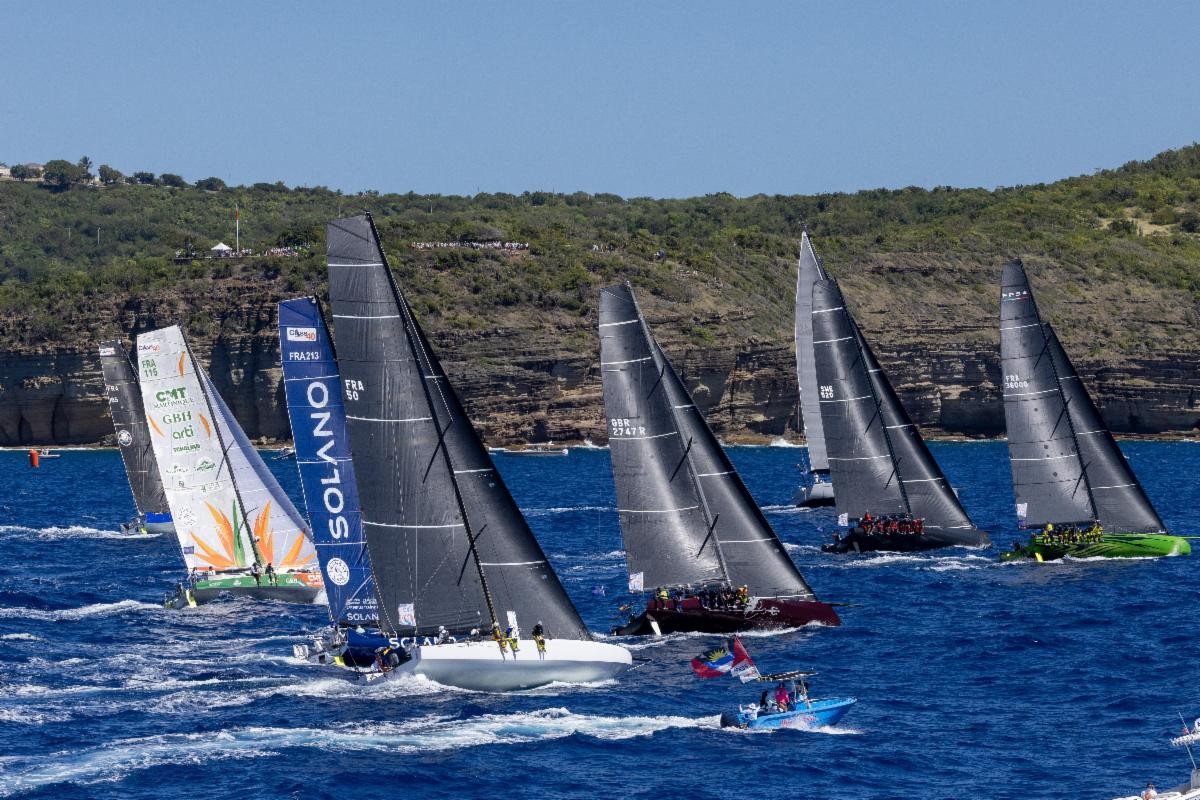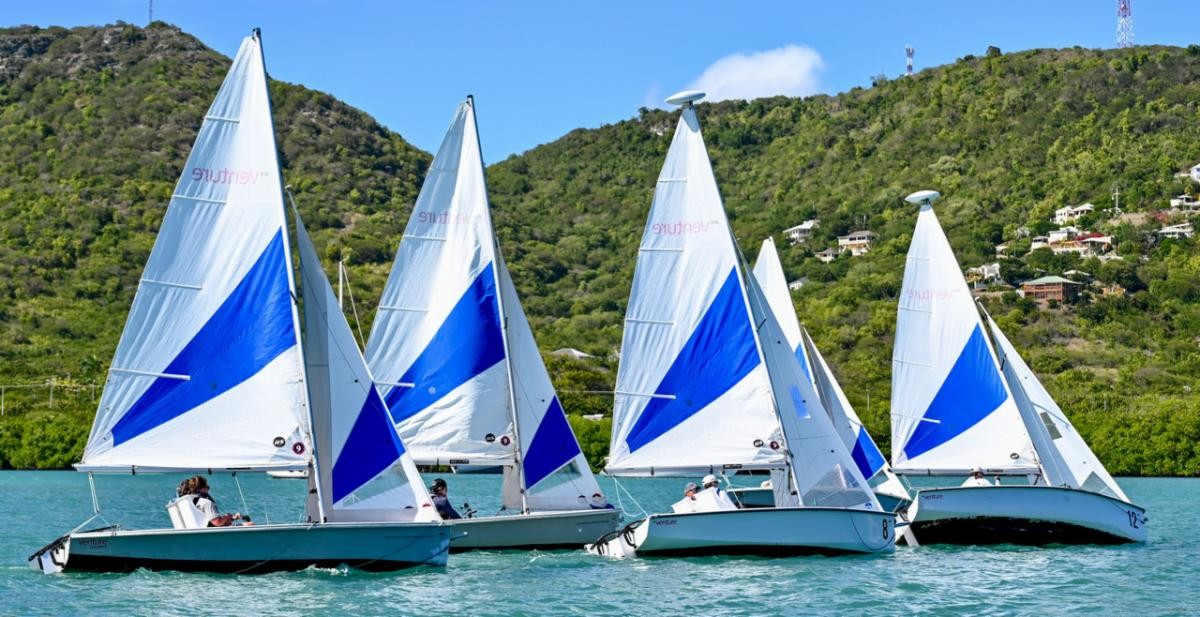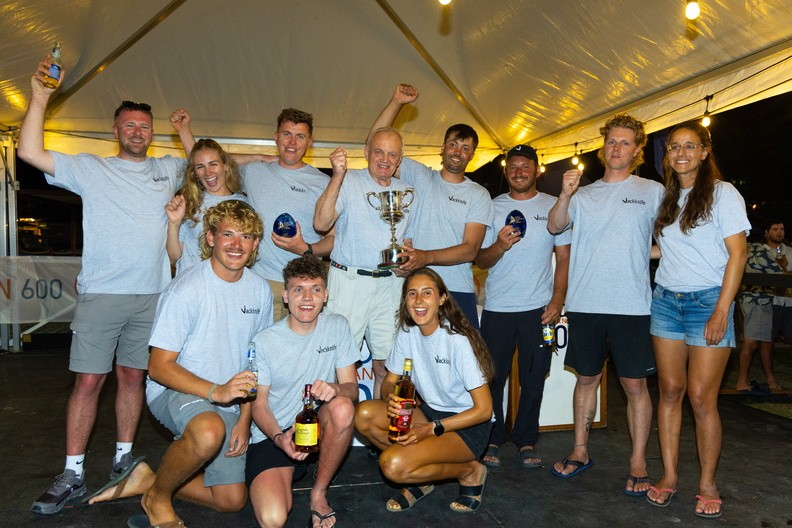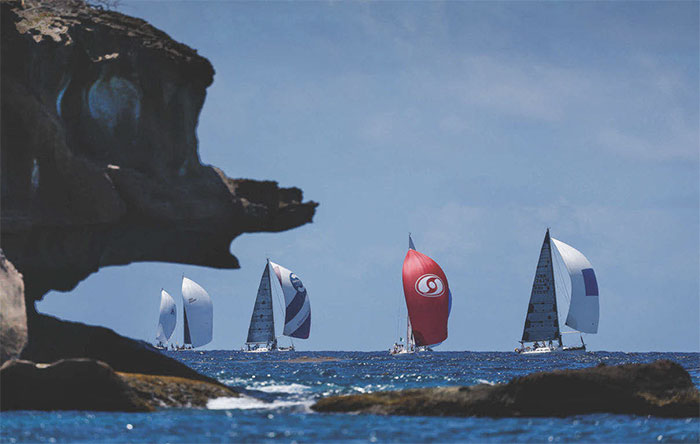
Dual scoring: CSA’s truce with IRC
Post Courtesy of Seahorse Magazine
Rather than having to choose between keeping their own tried-and-tested CSA rating system or replacing it with IRC, from next year all the major Caribbean regattas will offer dual scoring under both rating systems
major Caribbean regattas will offer dual scoring under both rating systems
For decades, the Caribbean Sailing Association has held fast on its own rating system (CSA) to preserve the rules for racing in paradise. With iconic trade winds, boats and crews of all sizes, designs and purviews, the CSA rule was made for the Caribbean.
Now that the annual Caribbean racing circuit continues to attract more international and modern boat designs, the Caribbean Sailing Association has collectively made the decision to add dual scoring for CSA and IRC at the region’s top events in 2026.
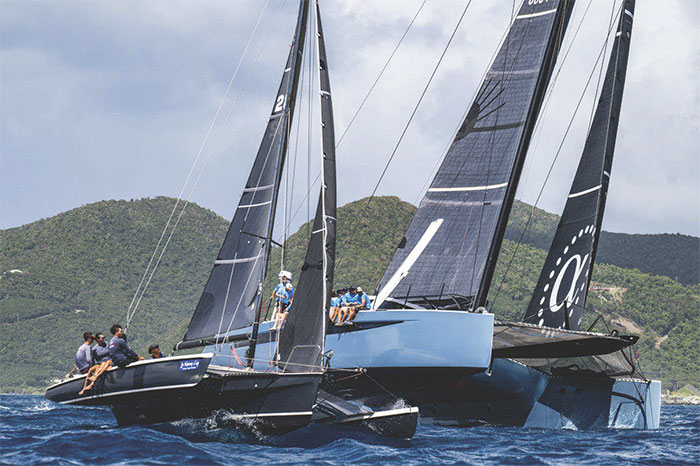
The CSA rule offers light-air ratings for multihulls. This is considered to be one of its key strengths in Caribbean regattas
‘The St Maarten Heineken Regatta is excited to offer IRC rating for the Maxi Class with the goal of attracting more of these boats to our beautiful Caribbean courses,’ says St Maarten Heineken Regatta chair, Cary Byerley. ‘We will also offer dual-IRC scoring to all CSA classes, giving different teams opportunities to win, while competition remains close and serious fun!’
Special trophies for the region will remain under CSA rule, honouring the collective and maintaining the heritage of race winners from over a half-century of racing. It will be up to each individual Caribbean regatta to decide which classes and trophies will be offered under dual scoring for CSA and IRC.
Which rule wins?
For several years, the RORC Caribbean 600 has offered dual scoring to accommodate both local and visiting boats competing in the region’s only offshore race. Of the 31 boats opting for dual-scoring in the 2025 event, there were three position swaps between two boats, and one boat advanced three spots. The alignment of scoring through most of the fleet proves the fairness across the rules, but also the opportunity to further level the playing field. For the past two editions of the Caribbean 600, the top results for IRC and CSA were the same. However, in 2023, Volvo65 WindWhisperer was left out of the IRC winners’ circle, but managed to boot Botin 56 Black Pearl off the podium in CSA.

The St Maarten Heineken Regatta is the largest yacht racing event in the Caribbean, with more than 13,000 visitors coming to the Regatta Village to enjoy the programme of shoreside festivities and free music concerts
Some boats are known to outperform their IRC rating under CSA and vice versa. For example, the Lombard 46 Pata Negra does better under IRC; meanwhile J122 and similar boats often perform stronger under CSA. Other boats that might have been designed as IRC “rule beaters” may find themselves rated more strongly by CSA in certain categories, such as fixed versus canting keel design choice.
While some boats are known to perform better, all rating rules will look for the reason why this occurs, and will adjust their formula to correct or limit
gaps. However, it is hardly possible to know which rule got it right, in which conditions.
‘All in all, the best prepared crew with the best all-round proven boat will have the best chances to win,’ says CSA president Bastien Pouthier.
Which rule is right?
For local boats and those cruising the Caribbean, the CSA rating system is highly valued for its accessibility. CSA offers up to eight sail rating options, including combinations of jib, pole, twin headsails, and spinnaker options. This allows boats that may have to race short-handed or with inexperienced crew for certain races to choose the sail setup that is the best option for their situation and the weather conditions. In comparison, IRC only offers two rating options.
On the technical side, CSA uses a quarter beam measurement to calculate underwater volume, which is ideal for boats without historical data. The CSA measurement process also requires minimal tools. For any boats arriving in the Caribbean or deciding to race at the last minute, a full rating can be issued within three hours by a certified measurer, who are located in all of the major racing islands for convenience.
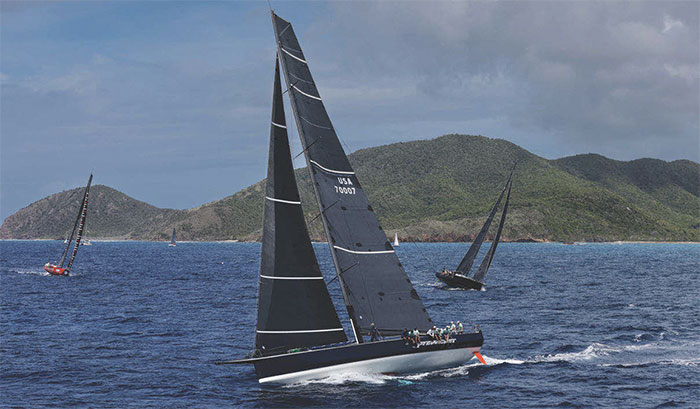
Volvo 70 Pyewacket was the overall 2023 Caribbean 600 winner. At the 2025 Caribbean 600, the team missed out on the IRC podium, but snagged third in CSA as not all IRC teams opted for dual CSA scoring
In the multihull category, CSA offers light-air multihull ratings. This is considered to be best-in-class for multihull rating rules. CSA rating officers are also constantly re-evaluating the rule, and making updates as new vessel designs join the Caribbean racing circuit.
‘This year, the new Windies Multihull Trophy (WMT) was created to incentivise more multihull racing throughout the Caribbean, rewarding the best participation in the most regattas,’ says David Walworth, CSA chief measurer. ‘We have worked hard to address any rating issues we noticed, and ones brought to our attention by the competitors, to keep the multihull racing fleets happily growing in the region.’
Similarly, IRC undergoes stringent evaluation and annual assessment by a collection of experts in the industry. Since IRC is used by many events around the world, it has gained international credibility and has been adopted by the most competitive race teams. IRC’s robust database and technical systems provide for better incorporation of modern design trends, while CSA’s rules are better for the region’s conditions and breadth of the fleets.
Both rules welcome
Some elite teams may feel that CSA penalises modern designs unfairly, but the convergence of results in dual-scored events like the Caribbean 600 proves otherwise. However, the Caribbean Sailing Association and its members recognises that international race teams are more accustomed to IRC racing and expected results. So the member events are adding the IRC rating option to offer a welcoming environment for international teams.
With international shipping ports such as St Maarten and Antigua ready to receive vessels, and world-class marine services to keep visiting yachts shipshape, the Caribbean is the place to be for the winter season. Serious race teams can enjoy great competition and training opportunities in paradise, while cruising boats can dip their toes into the racing scene with ease of entry.
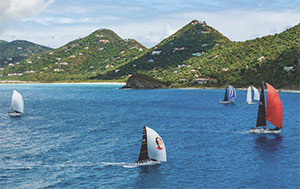
Most Caribbean regattas have a mix of round-the-marks and round-the-islands coastal races. BVI Spring Regatta kicks off with the Round Tortola Race, which gives competitors a great tour of the island at a racing pace
The CSA’s annual calendar is designed to keep boats active throughout the season, taking full advantage of the steady trade winds and beautiful Caribbean scenery. Visiting yachts are encouraged to join one of the transatlantic events such as the ARC in November or the RORC Transatlantic in January, and then plan an event itinerary to tour the Caribbean through April.
Some other big changes are coming to the Caribbean sailing circuit in 2026, with Antigua taking the lead. For the first time, Antigua will be the official finish for the RORC Transatlantic Race, streamlining logistics for boats heading into the Nelson Series and RORC Caribbean 600. In response to shifting demand, Antigua has also launched a new event, the Antigua Racing Cup (9-12 April), timed just before the revised BVI Spring Regatta dates to help crews wrap up their season by mid-April.
Meanwhile, Antigua Sailing Week is returning to its roots as a relaxed, point-to-point adventure tailored for liveaboards, emphasising the island’s reputation as a true sailing destination. Speaking of Antigua’s new race week, Antigua race manager Jaime Torres says: ‘What we have done is to distill the best racing from ASW and concentrate it into a more intense and focused regatta for the most competitive boats and crews. The result is the Antigua Racing Cup.’
There is something for everyone in the Caribbean. From offshore races to classics and superyacht racing weeks, music festival regattas, multihull-specific events, bareboat racing or racing your own cruising boat, the addition of IRC to all of CSA’s events further elevates the accessibility of international and competitive racing in the Caribbean.
The Caribbean Sailing Association is embracing IRC not to replace CSA, but to enhance competition and welcome the world. By providing multiple rating options – a proven local rule tailored to island conditions, plus an international rule revered by many – CSA ensures that every boat, from Grand Prix to Corinthian, has a fair shot at podium glory.
Whether you are optimised for IRC or new to Caribbean waters, there has never been a better time to race here.


